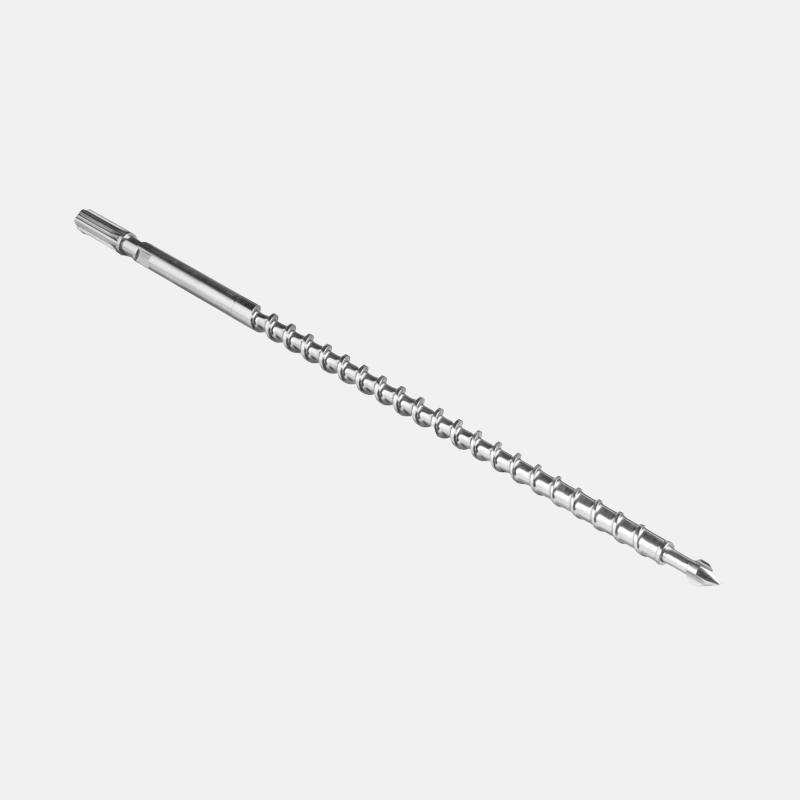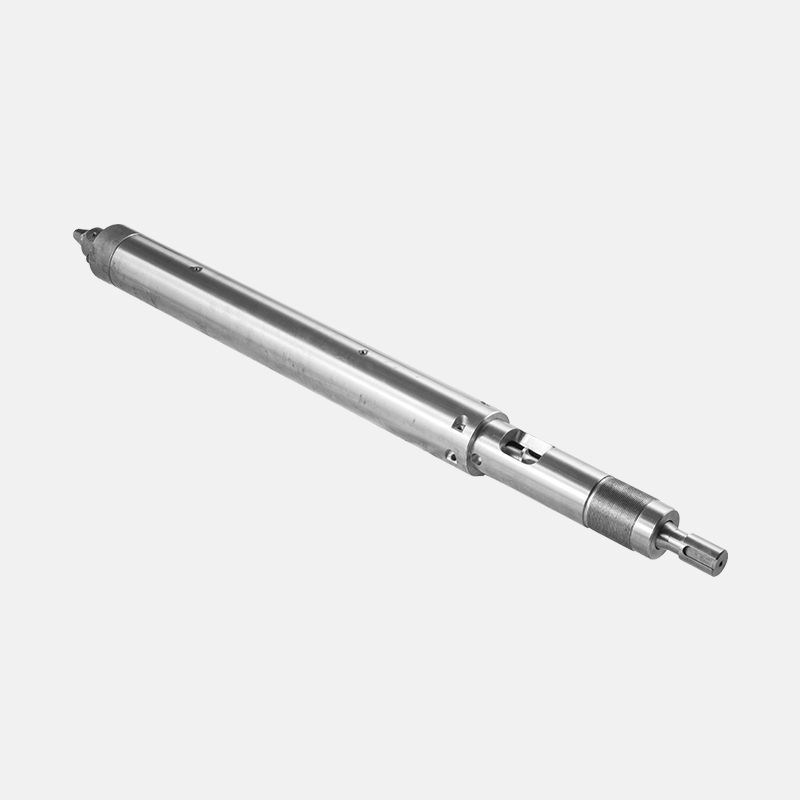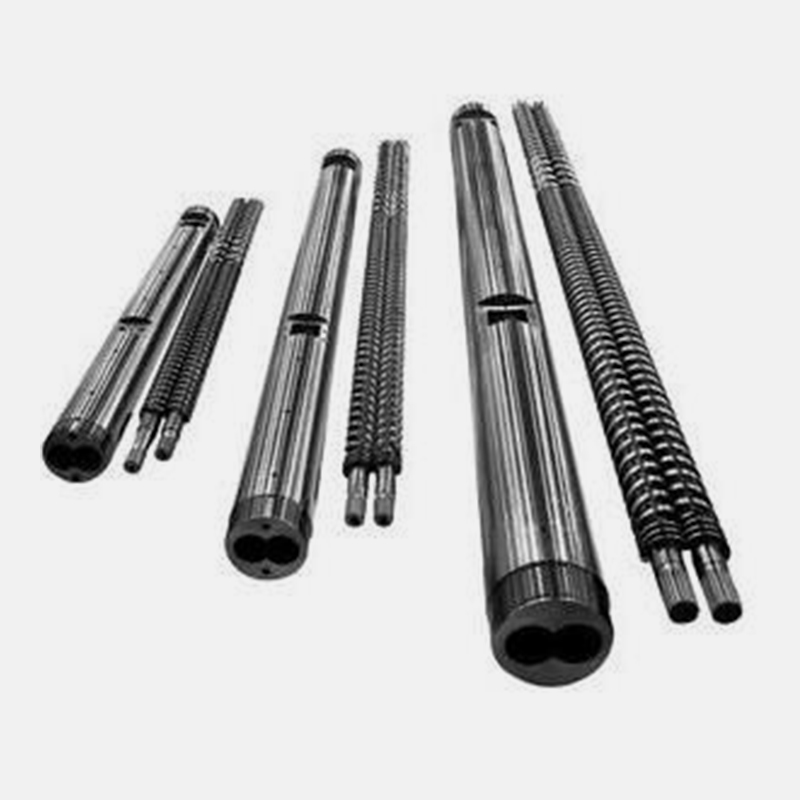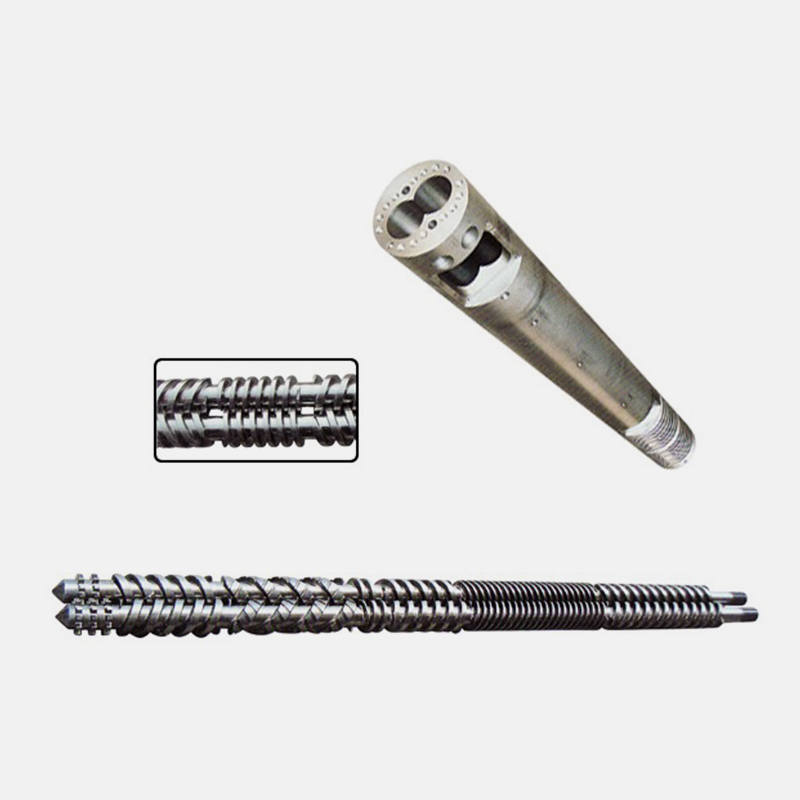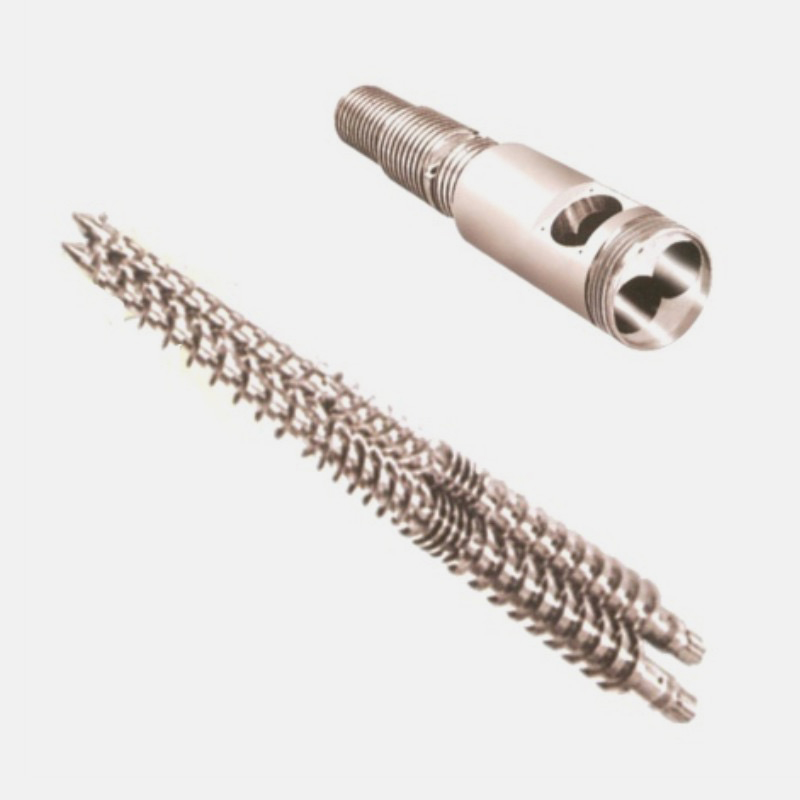1.Temperature Tolerances:
Temperature management is pivotal in granulation extrusion as it influences fabric behavior and the performance of the extrusion method. The temperature tolerances of extruder screws are critical because of various factors:
Melting Point of Materials: Different substances utilized in granulation have wonderful melting factors. The screw need to withstand temperatures matching or exceeding those melting factors without distortion or degradation. For instance, plastics, polymers, or compounds have precise temperature ranges required for proper extrusion with out compromising material residences.
Heat Generation from Friction: During the extrusion method, friction among the screw and the material generates warmness. The screw ought to tolerate those expanded temperatures without warping or losing its structural integrity. This heat can notably impact the viscosity and float traits of the cloth, affecting the best of the granules.
Heat Distribution and Dissipation: Proper warmness distribution and dissipation alongside the screw's duration are crucial. Uneven temperature distribution might result in variations in cloth residences, ensuing in inconsistent granule first-class. Heat dissipation mechanisms ought to efficaciously adjust temperatures to keep away from hot spots or overheating, ensuring uniform material processing.
Thermal Expansion and Contraction: Temperature versions purpose thermal growth and contraction in materials, which the screw need to withstand without compromising its function. Sudden temperature changes may want to induce pressure on the screw, probably leading to deformation or mechanical failure.
Material Compatibility: Different materials utilized in granulation have specific thermal necessities. The screw's temperature tolerance need to fit the unique requirements of the materials to maintain their residences and facilitate efficient extrusion with out fabric degradation.
Properly engineered screws utilize materials and coatings that provide high-temperature resistance, which includes nitriding or specialised alloys, ensuring they undergo the worrying thermal situations encountered at some point of granulation extrusion approaches.
2.Pressure Tolerances:
Pressure management is similarly vital in granulation extrusion as it directly influences material float, compaction, and granule formation. Consider these elements of pressure tolerances for extruder screws:
Forcing Material Through the Die: Granulation extruders exert huge stress to push substances via the die openings. The screw must withstand those high pressures even as retaining its structural integrity to facilitate proper cloth compaction and granulation.
Back Pressure and Resistance: Materials with special viscosities or compositions can generate again strain against the screw. The screw need to tolerate those varying pressures to ensure constant throughput and uniform excellent of the granules produced.
Avoiding Screw Breakage: Excessive strain can set off stress on the screw, main to capability fractures or breakage. Therefore, the screw have to take care of those pressures successfully to make sure uninterrupted operation without compromising the extrusion method.
Optimal Compression and Mixing: Pressure tolerance immediately impacts the screw's ability to compress and blend materials effectively. Maintaining appropriate strain stages all through the extrusion manner ensures the preferred cloth consistency and exceptional of the resulting granules.
Pressure Distribution: Uniform pressure distribution alongside the length of the screw is paramount. Consistent pressure ranges ensure uniform cloth processing and granule formation, stopping variations or defects in the very last product.
Engineers meticulously design screws to undergo excessive pressures encountered in granulation extrusion. This involves deciding on strong materials, optimizing geometries, and using advanced manufacturing strategies to make sure the screws can withstand the full-size forces and pressures inherent inside the extrusion method.
Extruder screw barrel for granulation extruder
Processing Technics
Heat treatment
Quenching
Nitriding treatment
Bimetallic alloy welding for screw
Bimetallic alloy centrifugal casting for barrel
Hard-chrome electroplating
Main Alloy Materials
Ni-based alloy/Deloro alloy
Tungsten carbide/Wolfram carbide
NiCo-based alloy
Fe-based alloy
Co-based alloy

 English
English 简体中文
简体中文 España
España عربى
عربى
